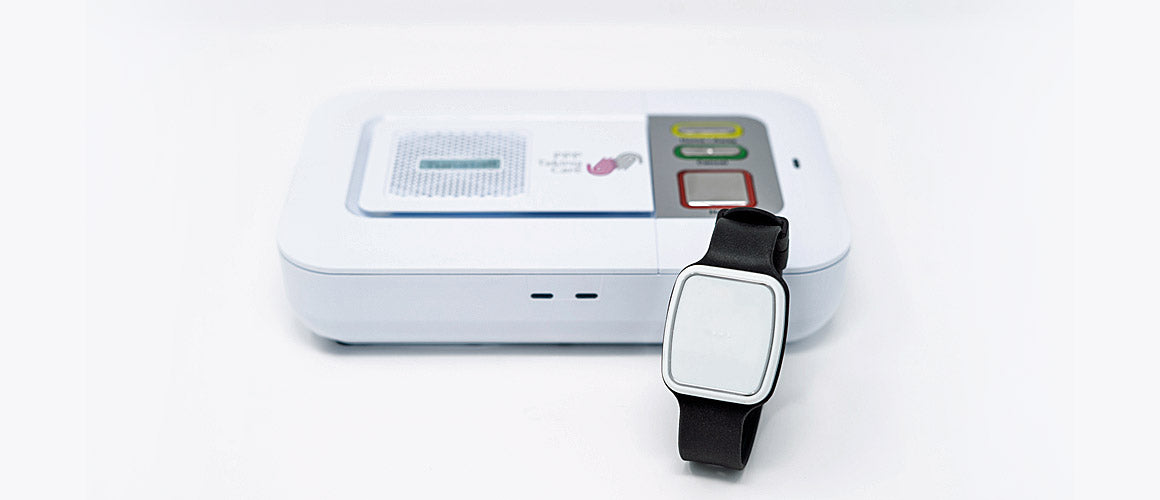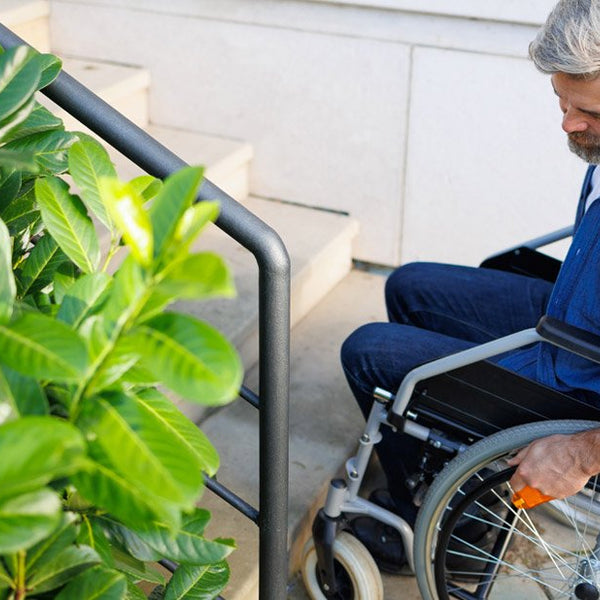A GSM alarm system, also known as a landline-free or digital personal alarm, works just like any other personal alarm but uses a multi-network SIM instead of a telephone landline to call the alarm monitoring centre when the customer presses their pendant button.
How does a GSM alarm work?
A GSM home alarm works like a mobile phone SIM, except that instead of connecting to just one network, it can connect to multiple mobile networks.
The multi-network SIM in a GSM alarm will automatically connect to the strongest network available to provide a reliable and seamless service. The personal alarm’s SIM card can switch between networks to find the strongest signal.
Why buy a GSM alarm system?
There are several benefits to having a GSM personal alarm:
You can place the personal alarm base unit where you want
With a GSM alarm there is more flexibility about where you place the GSM auto dialer base unit. A ‘traditional’ analogue alarm has to be connected to a telephone landline so it needs to be within reach of a telephone socket.
A GSM alarm does not have this restriction. As long as you have strong mobile signal, you can place the base unit wherever you’d like it, for example in a bedroom or kitchen.
No telephone landline required
The most obvious reason to get a personal alarm with a SIM card is if you don’t have a telephone line where you live. More and more people are using their mobile phones as their main telephone and do not want to pay line rental for a telephone landline.
Our digital GSM alarm will work in exactly the same way as our standard emergency alarms for the elderly , without requiring you to go to the trouble and cost of having a fixed line installed.
A GSM home alarm is future proof
A GSM personal alarm is future proof because it doesn't rely on the traditional analogue telephone network, which telephone providers plan to replace with digital equipment in the coming years.
The traditional analogue telephone network (called the ‘Public Switched Telephone Network’ or PSTN for short) is becoming increasingly costly and difficult for telephone providers to maintain.
By replacing this with new digital technology called ‘Voice Over Internet Protocol’ (VoIP), telephone providers will be able to provide consumers with clearer calls and ensure the service is fit for the future.
The switch from the traditional analogue phone lines will be undertaken by different telephone providers at different times depending on their plans and locations. Openreach and Virgin Media plan to transfer customers to digital networks by 2027. Your telephone provider can provide further details on their specific plans.
More information on how changes to the telephone network may affect you is available from the Ofcom website.
How do changes to the telephone network affect personal alarms?
For most people who use a telephone landline to make calls, the switch will be straightforward. They will continue to receive the same telephone landline service and use the same phone number.
At Taking Care, we have successfully tested our personal alarm equipment with digital telephone networks with help from all the main telephone providers, including BT and Virgin.
Our Landline-Free Personal Alarm and GPS alarms will be unaffected by these changes because they do not need a telephone landline. Instead they use a roaming SIM card to make calls to the Emergency Resolution Centre. As an added benefit, all call costs are included in the monthly subscription at no additional cost.
If you have any questions or concerns, our Customer Services team are happy to answer your questions. Please call 0800 085 7371, Monday to Friday, 9am - 6pm.
GPS alarms

